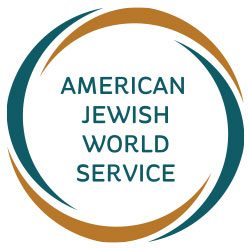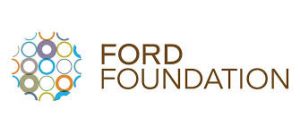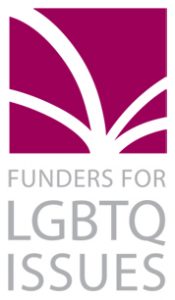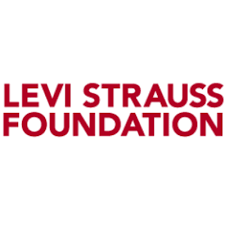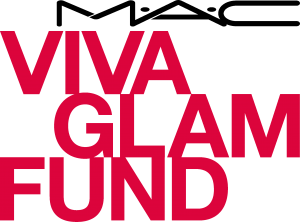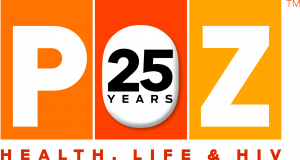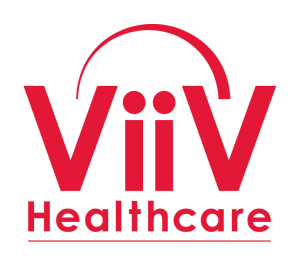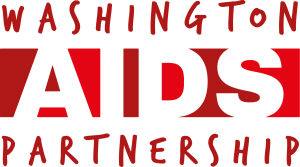“Keeping AIDS in the Headlines: Maintaining Focus, Expanding Priorities”
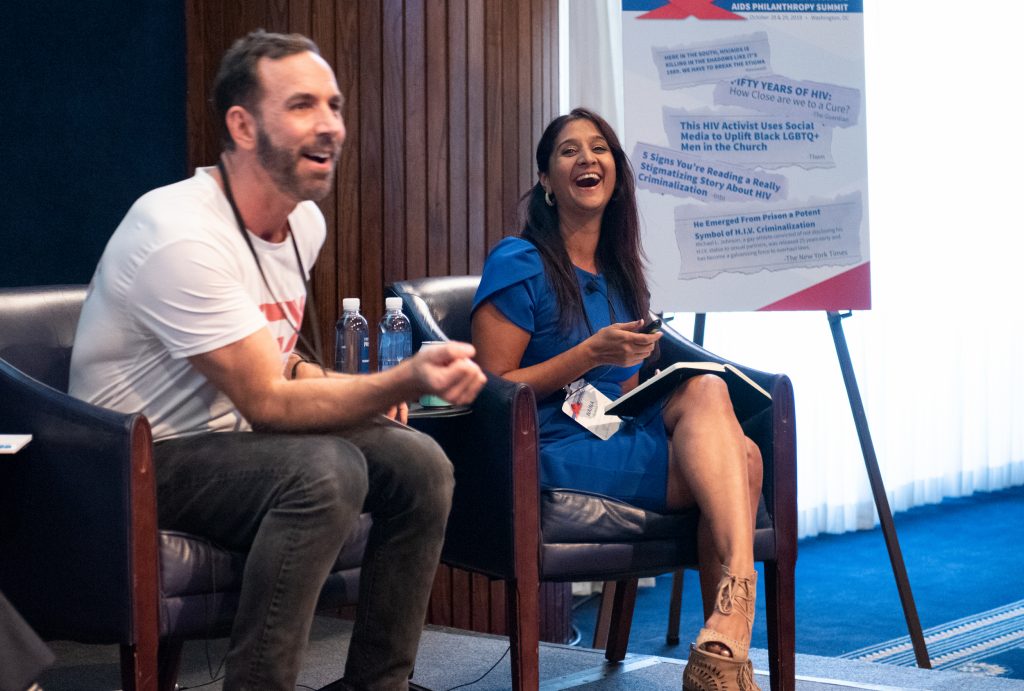
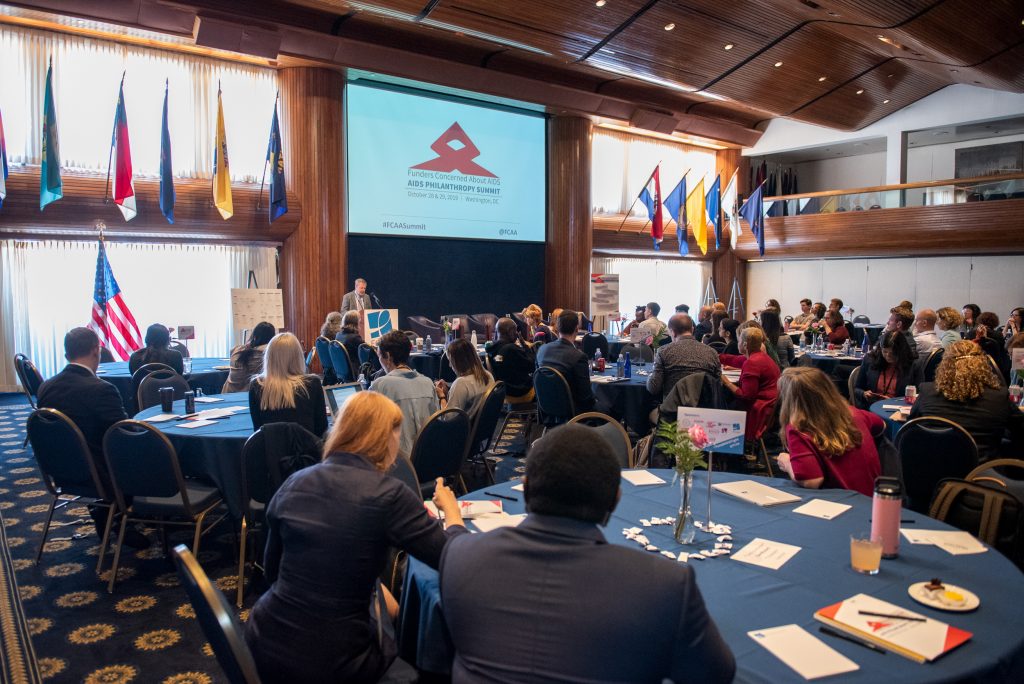
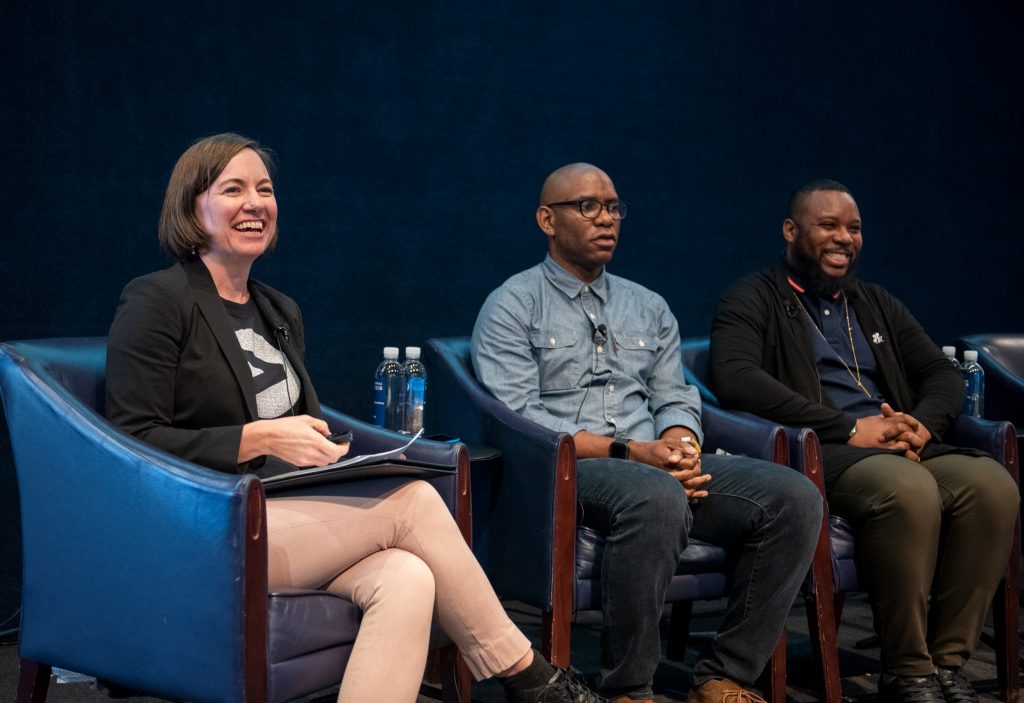
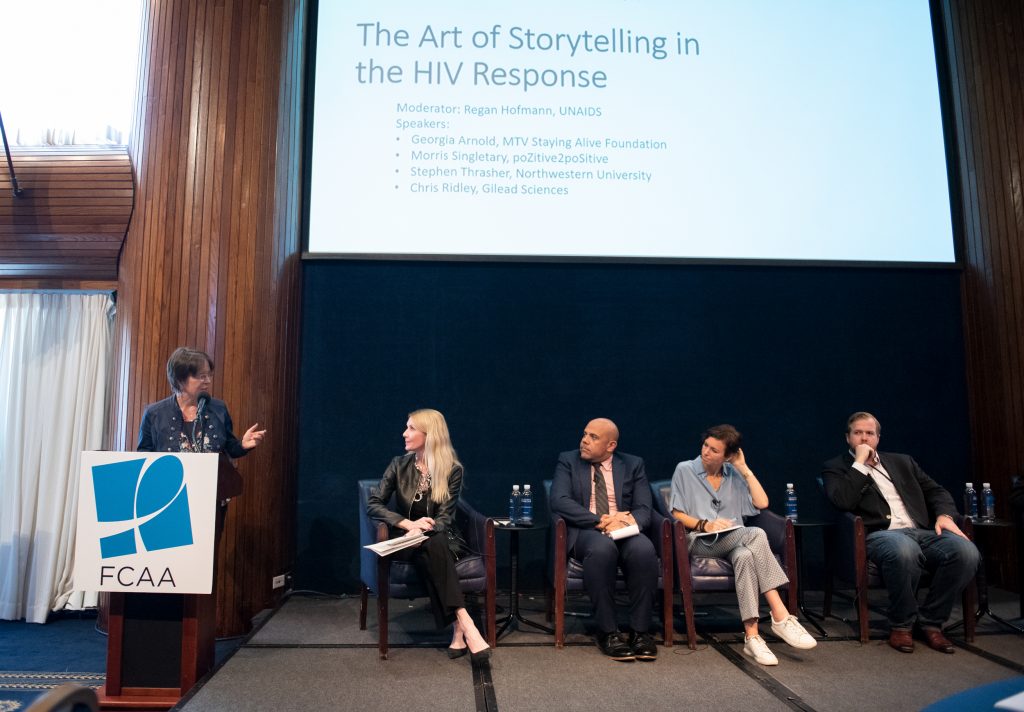
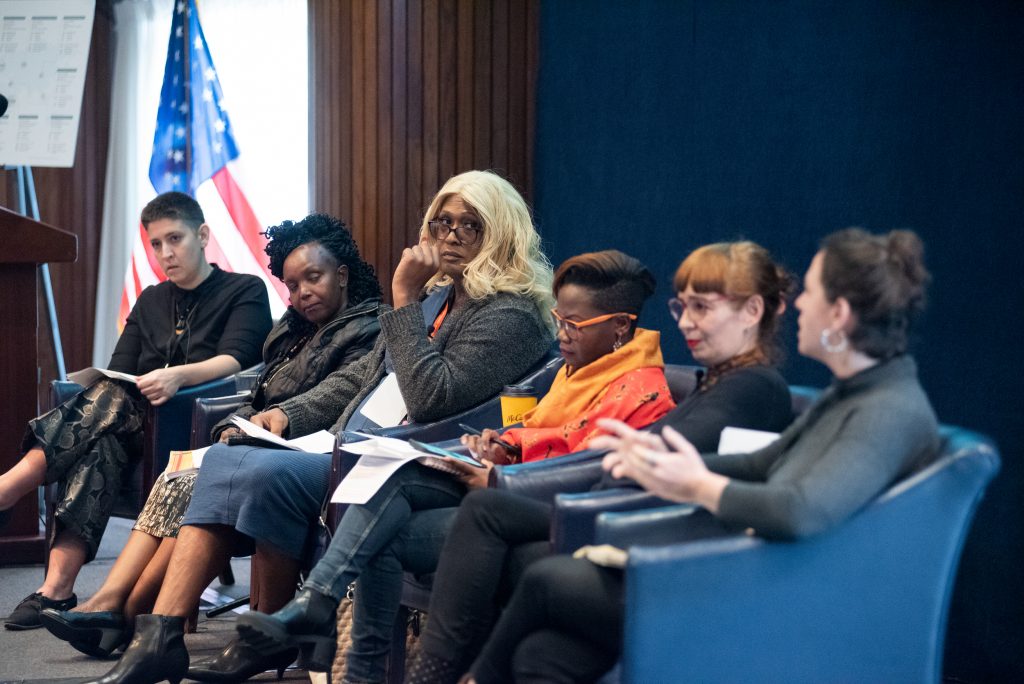
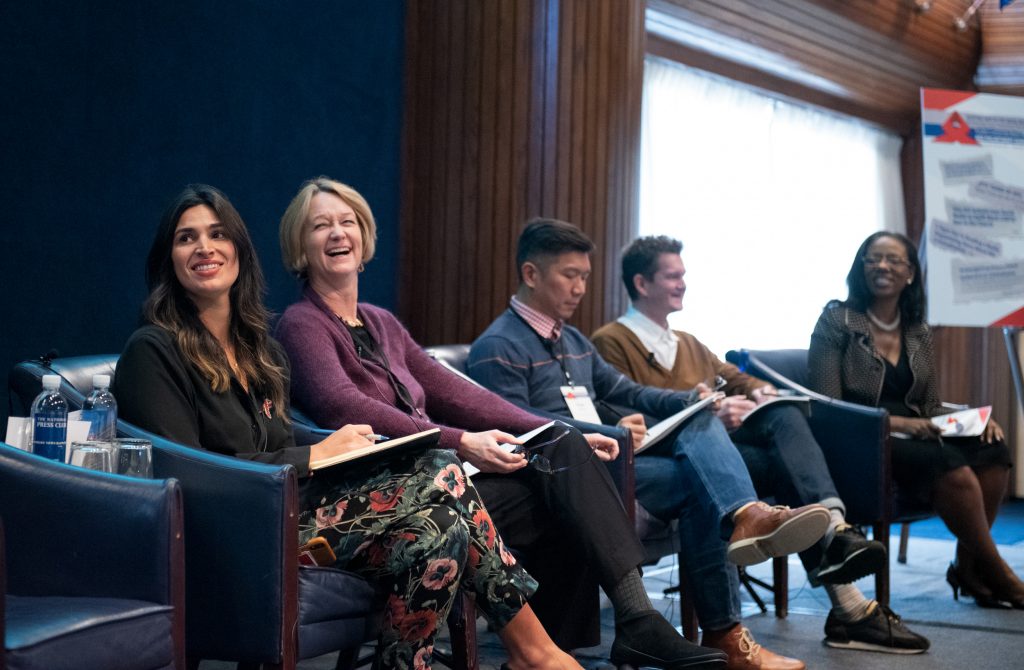
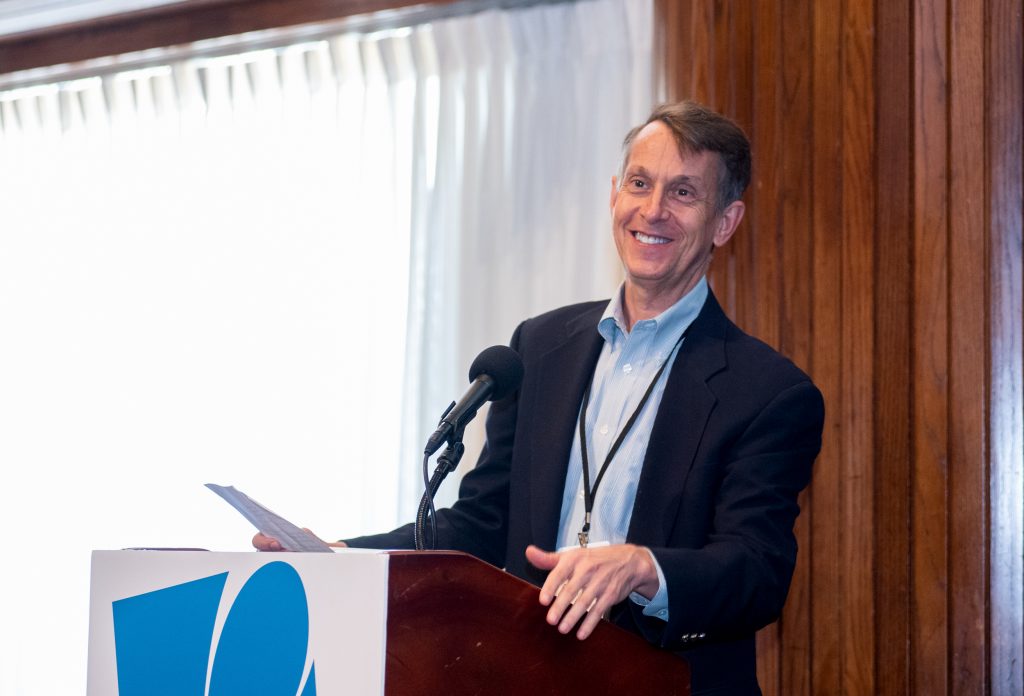
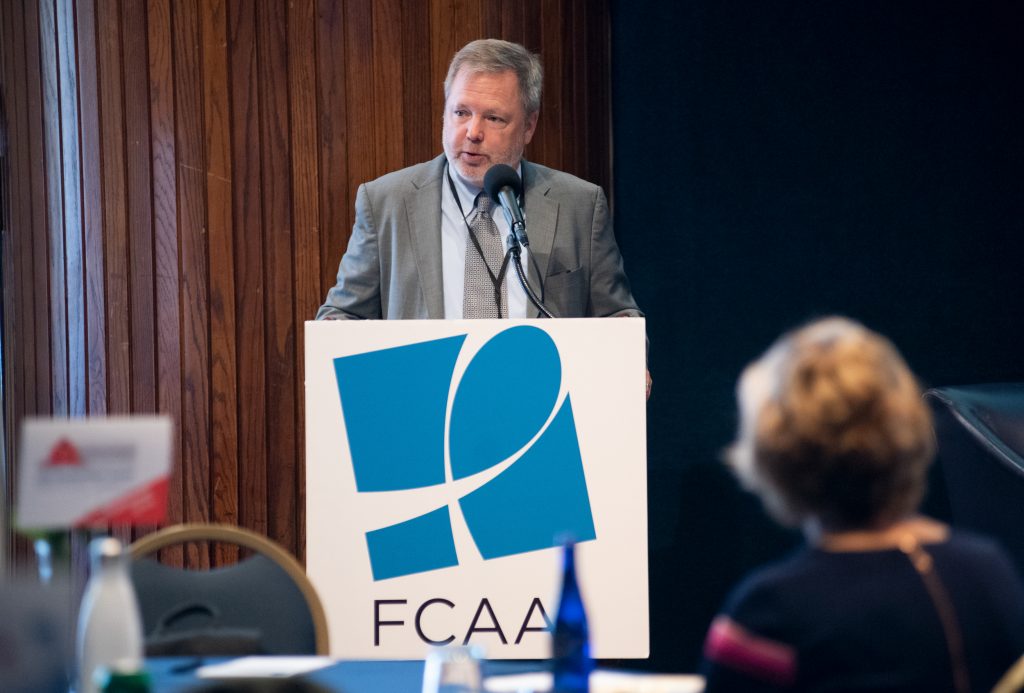
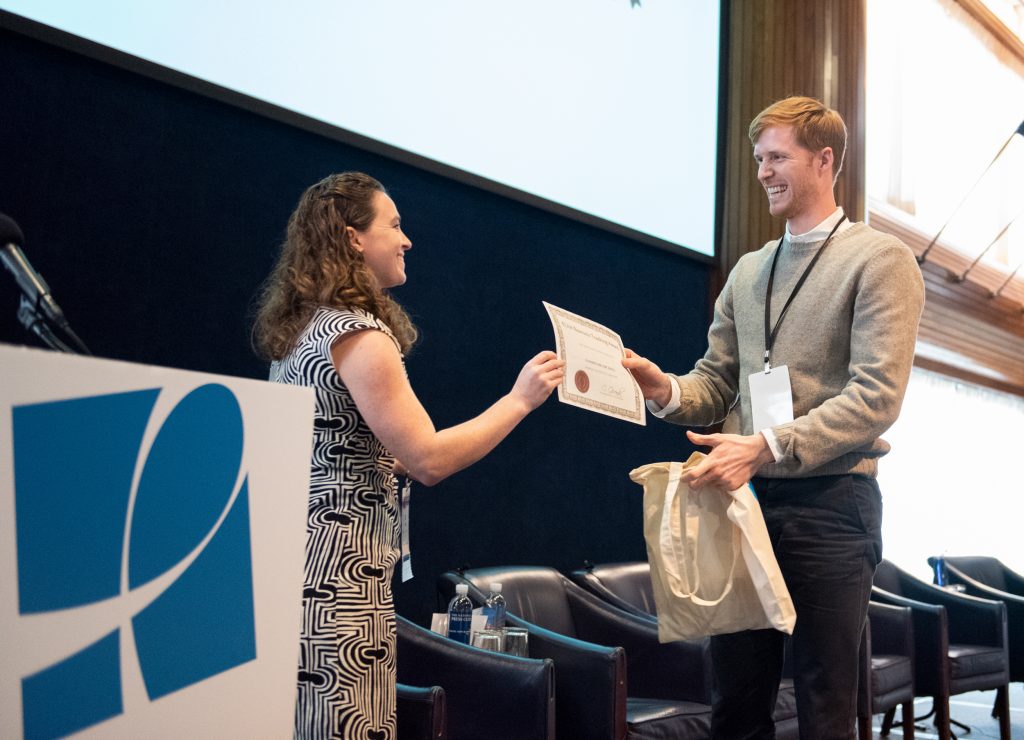
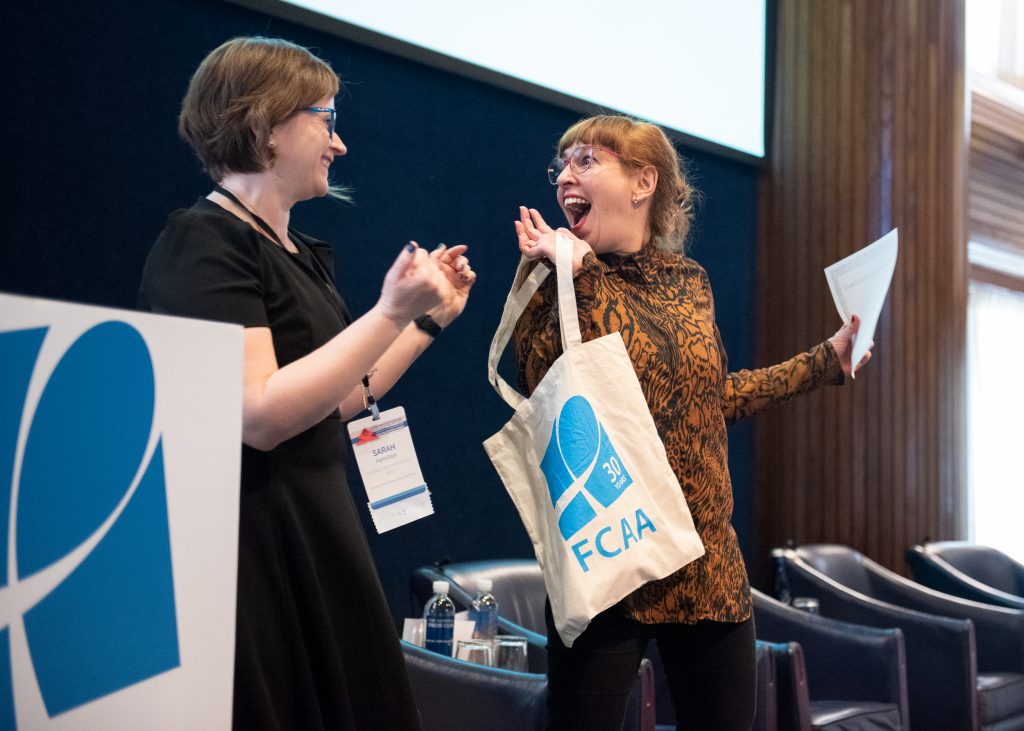
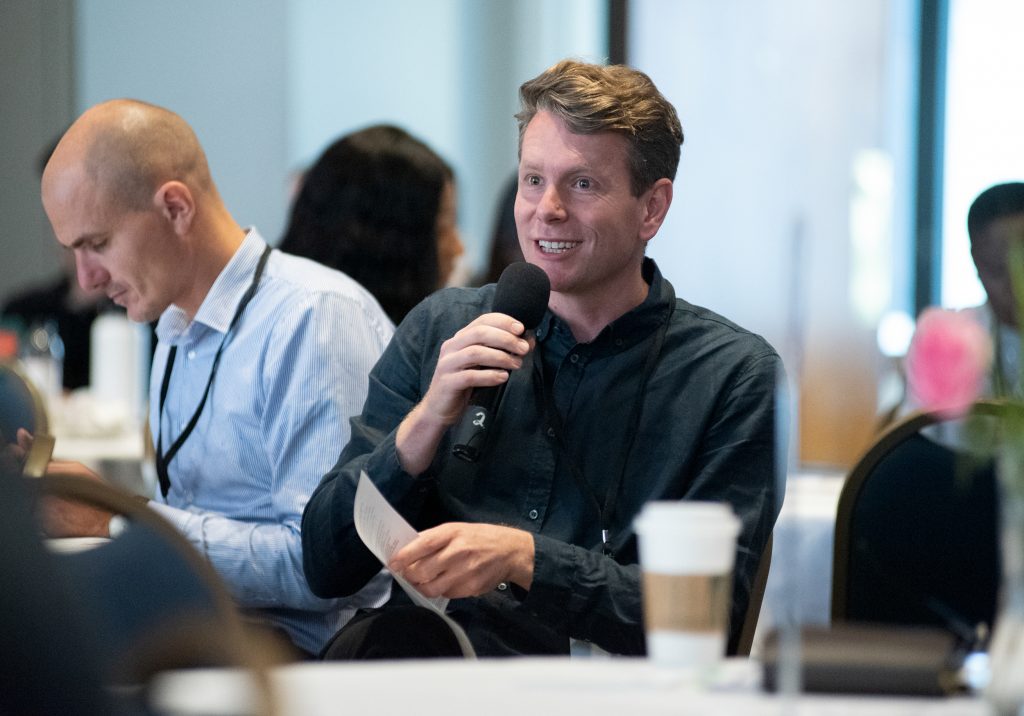
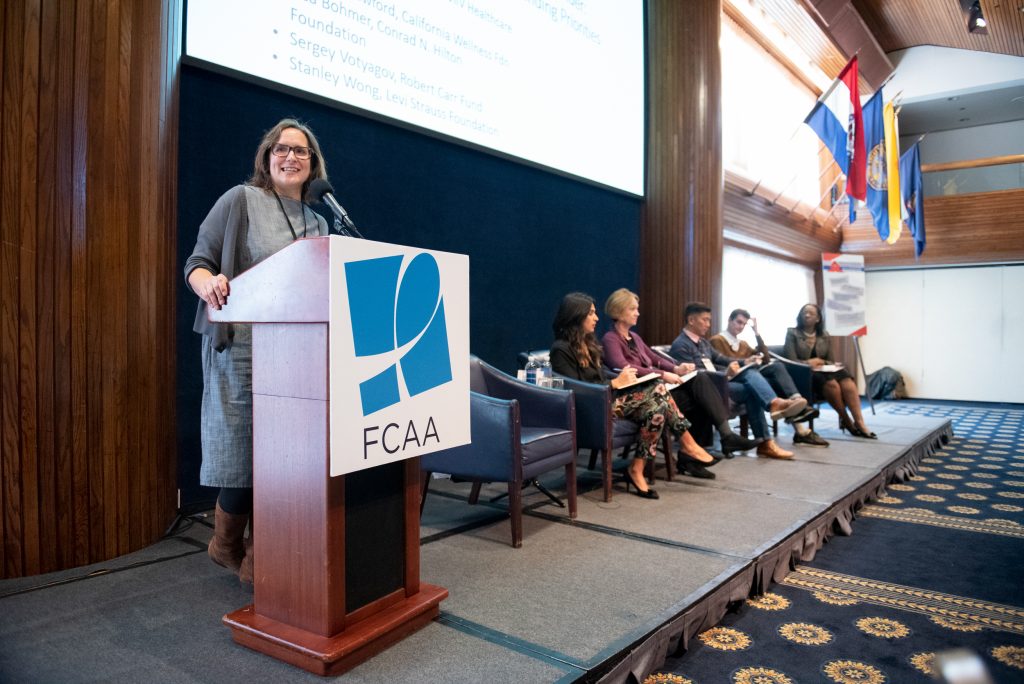
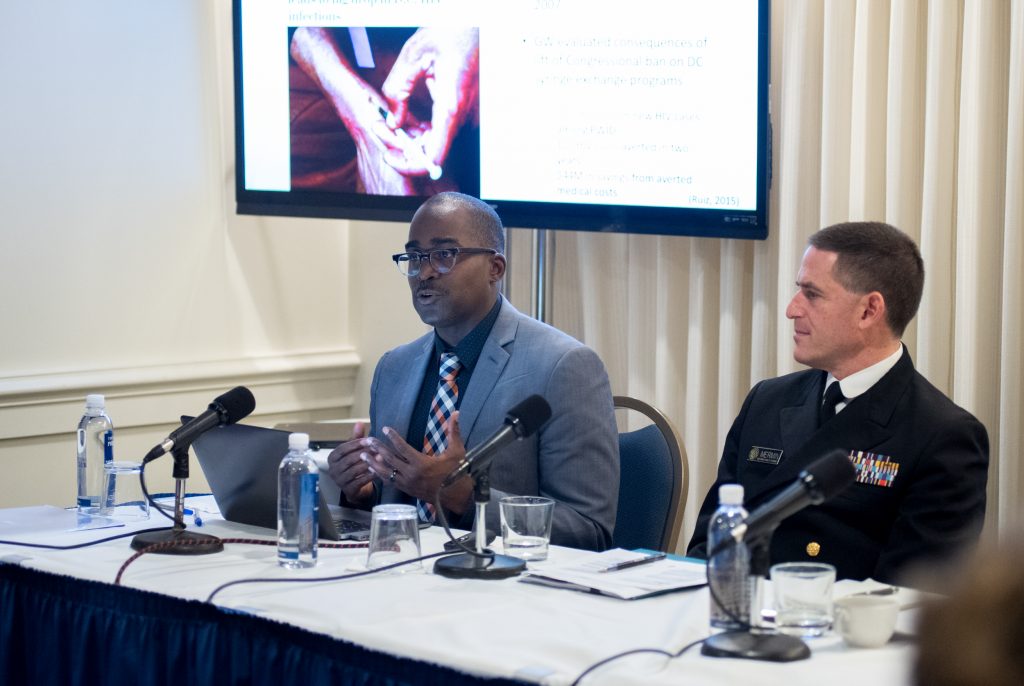
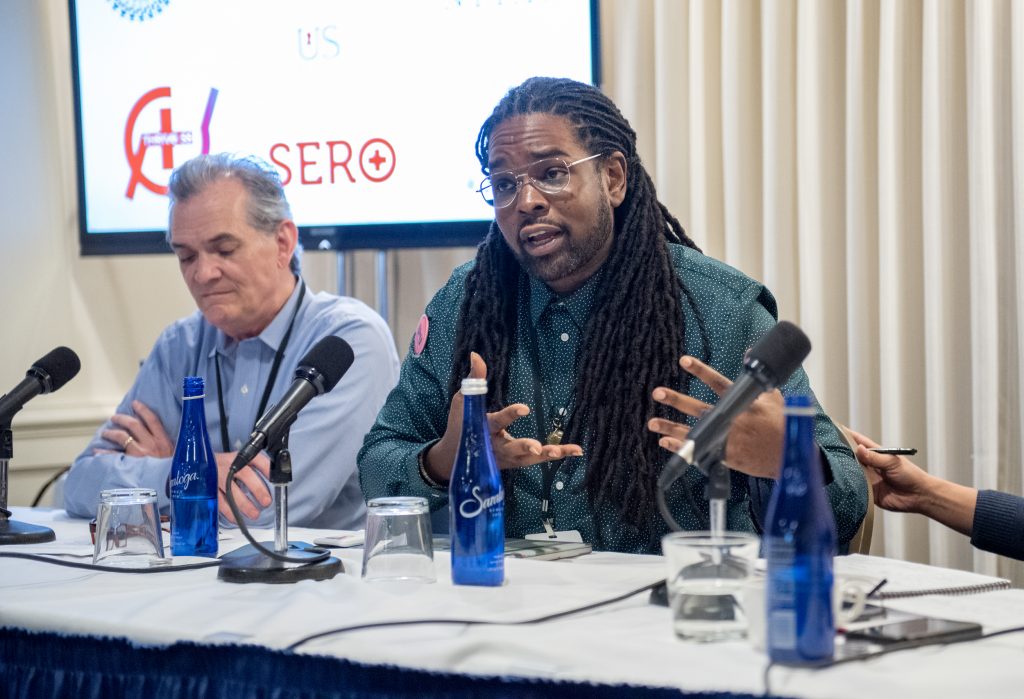
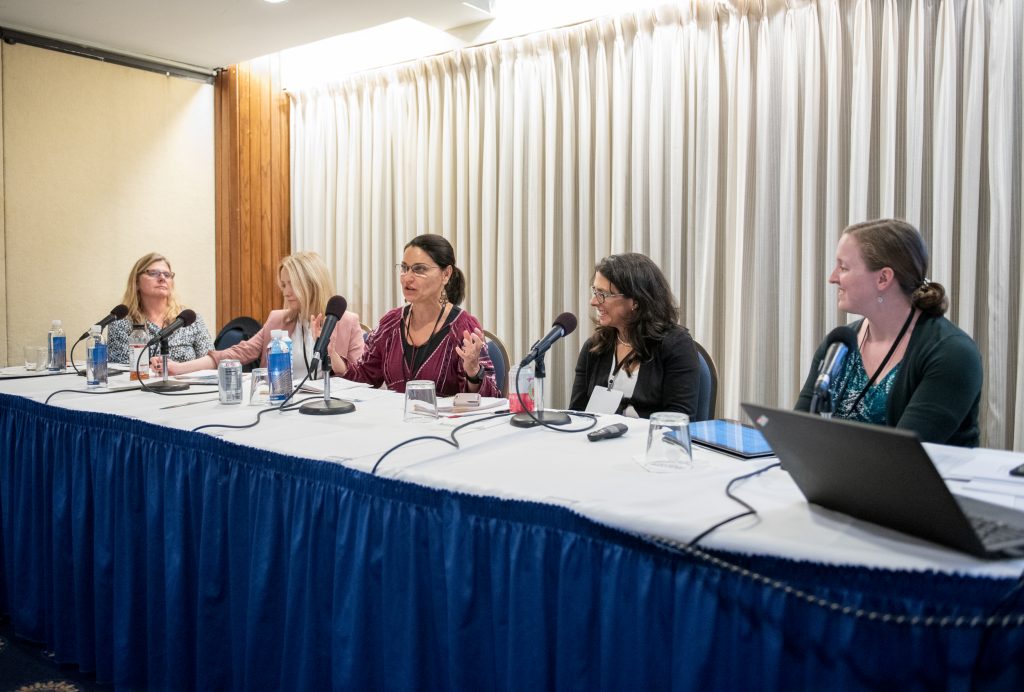
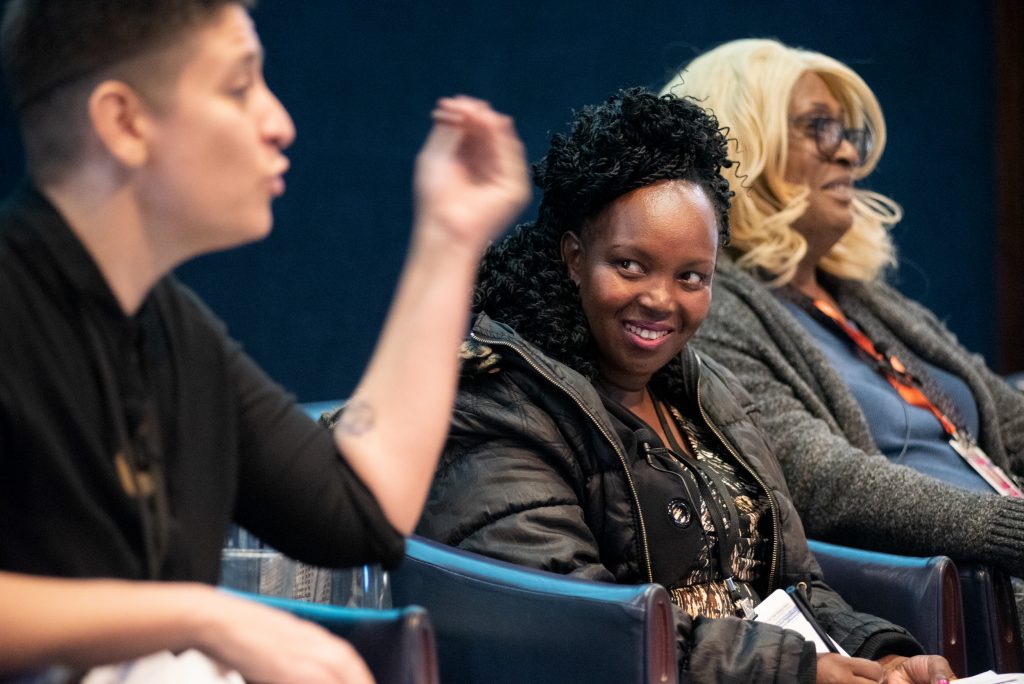
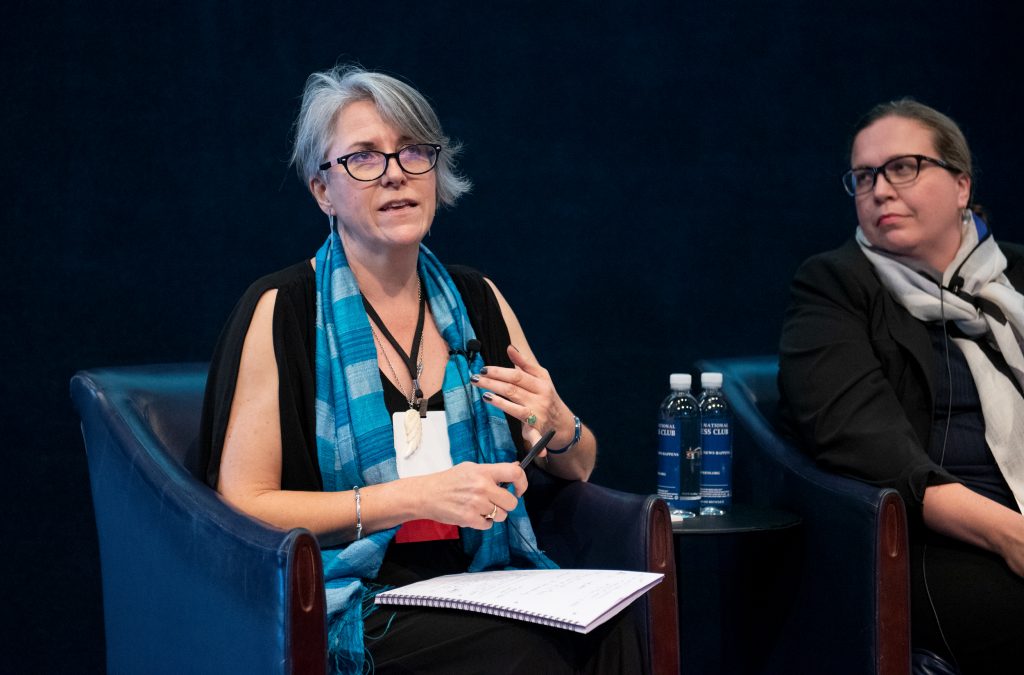
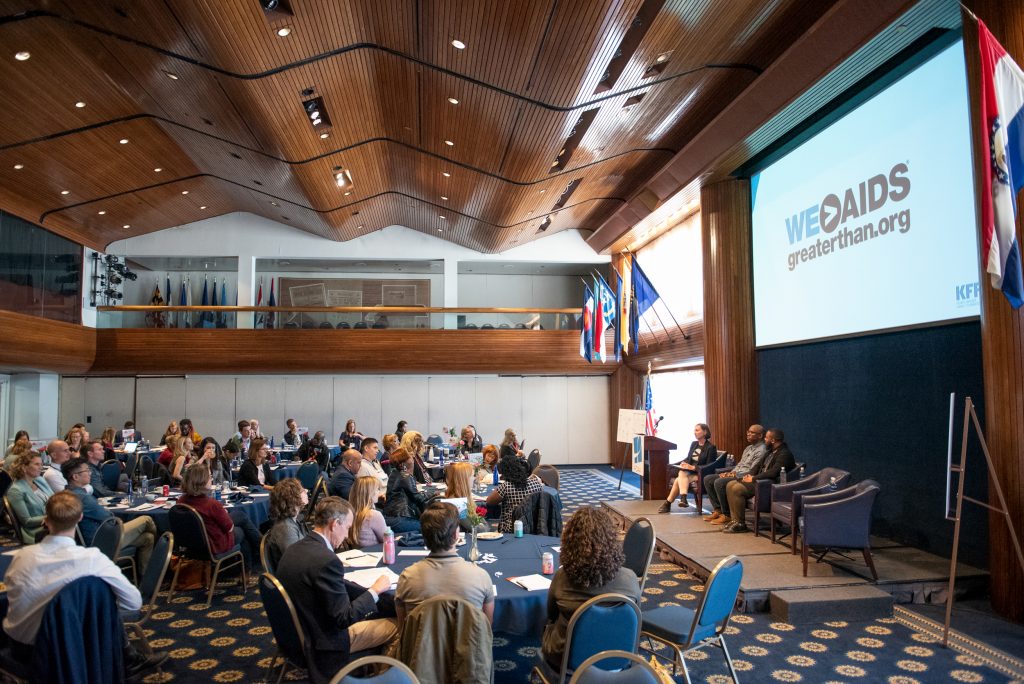
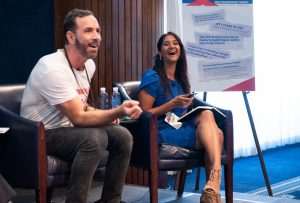
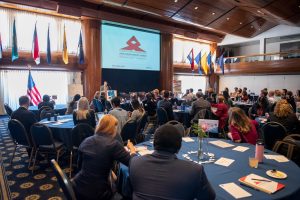
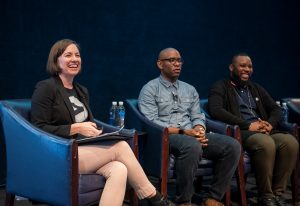
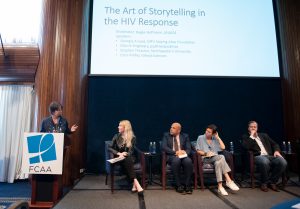
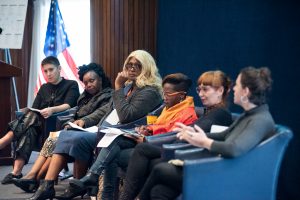
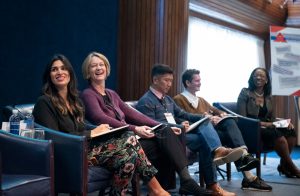

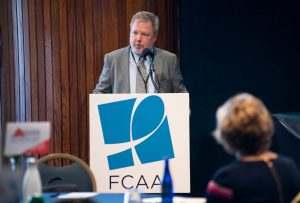
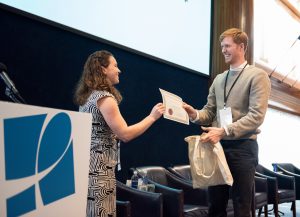

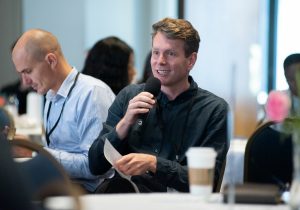
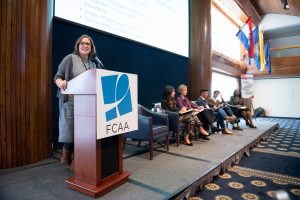
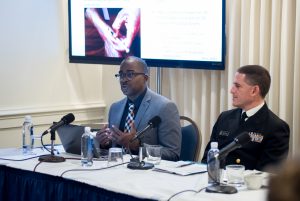
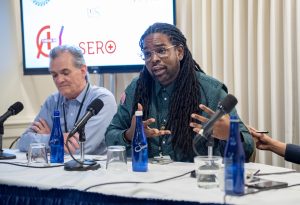
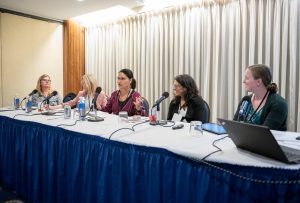
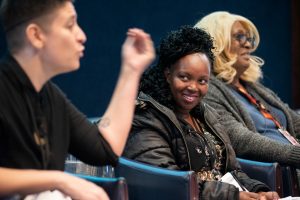
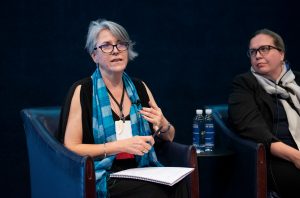
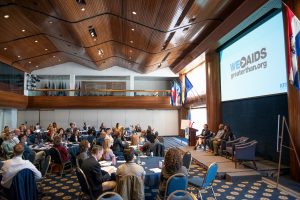
At this year’s summit we explored what it means to be an HIV funder in 2019, discussing topics such as:
- What is the way forward, AIDS exceptionalism or AIDS mainstreaming?
- How and why do funders center HIV within other priorities?
- How do funders measure success when funding HIV work that intersects with other drivers?
This year’s theme – and our new venue – also presented an opportunity to look at HIV-related funding through a unique lens. Media – in all its forms – has the power both to reach the communities most impacted by HIV, as well as to inform and amplify our work. It is also a platform that can be used to ensure that HIV/AIDS stays top-of-mind, even as funding and programming becomes increasingly integrated.
Our media focus will explore the role of funders in:
- Ensuring AIDS remains in the headlines;
- Using the media to effectively address HIV care, prevention, and treatment; and
- Successfully countering media inaccuracies about HIV/AIDS.
Registration
Summit registration is open to representatives from any public or private grantmaking entity or philanthropic infrastructure organization (i.e., board members, staff, grant advisory committee members, etc.). Registration includes lunch and a reception on the first day, and breakfast and lunch on day two.
Please note, by registering for this event, you are also agreeing to abide by FCAA’s no-solicitation policy. Please read the full policy HERE. Download this registration memo for more information. If you still have questions, please contact Sarah Hamilton [email protected].
| Early Bird Rates (After Thursday, 5 October ) | ||
| Member* | Non-Member | |
| One Day | $300 | $500 |
| Both Days | $400 | $600 |
|
Regular Rates (After Thursday, 5 October ) |
||
| Member* | Non-Member | |
| One Day | $400 | $600 |
| Both Days | $500 | $700 |
*In order to utilize the Member Rate, your institution must be a 2019 member organization of FCAA. Questions regarding your membership status, please visit FCAA’s team page or contact Sarah Hamilton at [email protected].
If you are interested in learning more about Sponsorship opportunities, please download this memo.
Schedule
Media shape perceptions of HIV in all the communities where we work. As funders, we can harness the unparalleled power of media to reach large audiences and also leverage the latest digital platforms to focus on specific disproportionately-affected priority populations, so that we can direct our resources to accurately inform, connect to services, shape attitudes, and build community. This session will review the changing media landscape and delve into the ways that HIV is portrayed by news outlets, entertainment media, social media users, and public health campaigns to amplify community voices and guide efforts to end the HIV epidemic.
Speakers
Now that we have established “why media matters”, we will examine the ways in which strategic interventions can start conversations, change narratives, correct misconceptions and anchor critical advocacy and prevention initiatives. Using HIV criminalization, the U=U campaign, and harm reduction as case studies, this session will work to answer:
- What are the dominant narrative frames in media coverage of HIV, and how are they evolving (or not);
- Where and how are people affected by HIV communicating today, in terms of media interventions;
- How can HIV justice activists meaningfully engage with journalists and media outlets of all types;
- How does access to more interactive communication technology and social media have an impact on the HIV media response;
- What are the dynamics of media created by grassroots organizations vs mainstream media; and
- How can funders support strategic media interventions about HIV and help to change the conversation?
The panel will share different perspectives, strategies and concrete tools – centered on lived experiences – to combat stigma and mobilize HIV justice worldwide.
Speakers
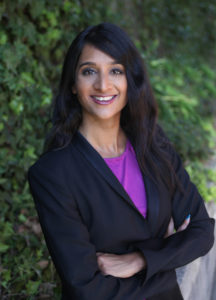
To close out the day’s focus on media and messaging, this plenary will zoom in on the role that storytelling can play in communicating about, and advocating for, the needs of people impacted by HIV. Through a facilitated conversation we will explore the role that different storytelling mediums – traditional journalism, television, social media, and media partnerships and advocacy – can play in shaping culture, fighting stigma, and changing attitudes and behaviors toward HIV/AIDS. Importantly this panel will also tackle the role of strategic philanthropy to initiate, measure, and scale up these initiatives.
Speakers
Communities on the frontlines of the HIV/AIDS epidemic are facing new and mounting attacks. In today’s political climate, we need increased funding across issues and to employ innovative strategies that center criminalized communities, especially sex workers, LGBTQI+ people, and people of color.
Where and how can HIV funders draw strategy from the nimbleness and creativity of movement organizers? How can we be more receptive and responsive to the needs and experiences of people most impacted by oppression? How can HIV funding help to reduce the harms of criminalization, stigma, violence, and oppression? This interactive workshop will explore these questions by drawing on insights from the only three participatory funds globally by-and-for sex workers (UHAI EASHRI, Red Umbrella Fund, and Third Wave Fund’s Sex Worker Giving Circle). We will be joined by representatives from Open Society Foundations, HIPS (Washington, D.C.), and the Bar Hostess Empowerment and Support Programme (Nairobi, Kenya) to collectively explore real-life examples of funder practices that respond to frontline needs.
Together, we’ll share successful tactics for matching movement creativity and resilience, even while navigating rigid systems or the limitations of restricted funding. We’ll examine opportunities to build in more flexible grantmaking criteria and processes, get inventive with reporting requirements, and show up for frontline communities to support their shifting needs in oppressive environments. We’ll offer a checklist of creative funding strategies before using these ideas to brainstorm responses to challenging scenarios across funding settings.
Speakers
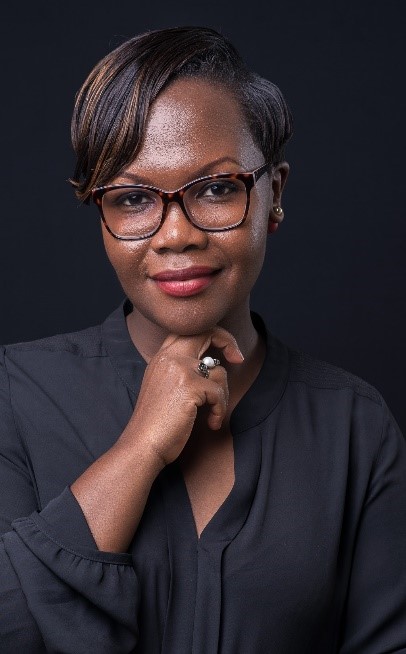
Dr. Stellah Bosire is the Co-Executive Director of UHAI-EASHRI Africa’s first indigenous activist fund for and by sex workers, LGBTI people which supports civil society organizing across 7 East and Central African states and pan-African organizing addressing; poverty, violence, ensuring that education, employment, housing, and healthcare are accessible to all, without prejudice while fighting oppression and injustice daily through changing legislation, landscapes, and lives. Her expertise both locally and internationally is in Sexual and Reproductive Health and Rights focusing on vulnerable populations- sex workers, people who inject drugs, LGBTIQ and people living with HIV/AIDS influencing laws, policies and programs beyond Kenya.
As funders, our ultimate goal is for national governments to take our place and to fund a comprehensive package of HIV prevention and treatment services for everyone who needs them. What we want to avoid is the kind of disruption or cessation of services that occurs when donors cease funding key programmes abruptly and without a clear plan for hand over. Many governments are reluctant to fund services for Key Populations that are criminalised, such as needle exchange services for drug users, or condom distribution services for sex workers. Moreover, if budgets are squeezed, prevention services are usually the first to be cut, and civil society organisations find it harder to secure funds for advocacy or to hold governments to account. This session, designed by Frontline AIDS and the Joep Lange Institute, will highlight some of the critical services and programmes that philanthropists may need to keep supporting at community level as governments take over responsibility for HIV services previously funded by donors.
Speakers
The U.S. Department of Health and Human Services (HHS) is proposing a once-in-a-generation opportunity to eliminate new HIV infections in our nation. The Ending the HIV Epidemic initiative will target resources to the 48 highest burden counties, Washington, D.C., San Juan, Puerto Rico, and 7 states with a substantial rural HIV burden. CDC will work closely with other HHS agencies, local and state governments, communities, and people with HIV to expand key HIV prevention strategies. The D.C. Department of Health paints the picture of how much progress can be made toward ending the HIV epidemic by using evidence-based interventions such as population-focused HIV testing, treatment as prevention, condom distribution, needle exchange, and pre-exposure prophylaxis (PrEP). The session will also highlight new data and resources to support the national effort to end HIV, such as amfAR’s new “Ending the HIV Epidemic” database.
Speakers
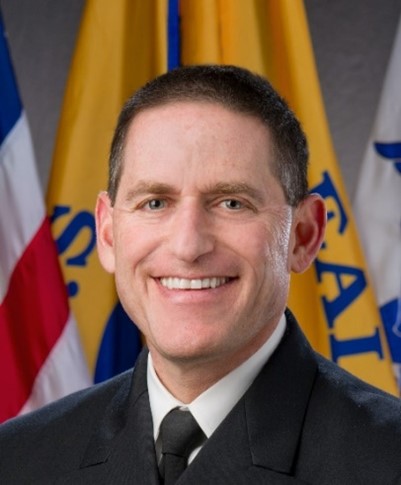
Jonathan Mermin, MD, MPH, is Director of the National Center for HIV/AIDS, Viral Hepatitis, STD, and TB Prevention at CDC. He has focused his public health career on science-based, practical programs that increase health equity and decrease incidence and mortality. Rear Admiral Mermin was an internal medicine resident at San Francisco General Hospital, and a preventive medicine resident at CDC and the California Department of Health Services. He is a graduate of Harvard College and Stanford University School of Medicine and received his MPH from Emory University. He has co-authored over 200 scientific publications.

Gregorio (Greg) Millett is a Vice President at amfAR, the Foundation for AIDS Research, and the Director of amfAR’s Public Policy Office in Washington, DC. Mr. Millett is a former senior scientist with the Centers for Disease Control and Prevention, as well as a former Senior Policy Advisor in the White House Domestic Policy Council where he helped author and implement President Obama’s original National HIV/AIDS Strategy. Mr. Millett is a leader in health inequities research. He has published in top medical, public health and policy journals, including JAMA, Lancet, BMJ, Health Affairs, and AJPH, and has been a plenary speaker at multiple IAS and CROI conferences. In early 2020, Mr. Millett and his team provided the first national overview of COVID-19’s impact on Black and Latinx communities in the United States. These research findings were widely reported across print and televised media, and utilized in Congressional hearings that aimed to address COVID-19 health inequities.

Self-care, putting health knowledge, tools and decision-making in the hands of users, can radically transform access to healthcare, particularly for HIV prevention and sexual and reproductive health, where stigma and provider bias limit the availability and acceptability of provider-based services. With new tools and technology, from self-testing to self-injection, the time to invest in building the infrastructure and culture of self-care is ripe. Global bodies are setting the policy scene for self-care and rallying the global community around a common vision; however, there is a catalytic role for private philanthropy, with its close connection to social movements, to be leaders in driving a new person-centric approach to services. Private philanthropy can also help generate the evidence needed that self-care can increase access to services, keep people on treatment, and potentially generate health systems cost savings; and provide high-impact models for other donors to scale.
This session aims to:
• Describe what self-care is and the potential impact it could have on offering better integrated services to girls and women and improving health outcomes
• Showcase user experiences and how self-care empowers
• Share promising solutions in HIV and what is needed to scale up
• Explore how private philanthropy can be the catalyst for self-care
Speakers
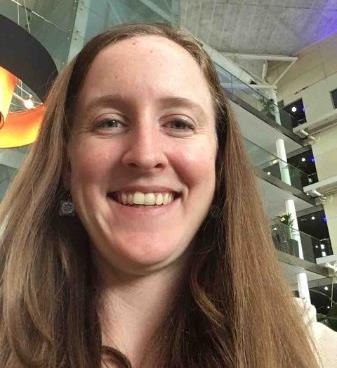
Taryn Barker is the Director, SRHR- Equitable Access at the Children’s Investment Fund Foundation. Prior to CIFF, she was the Director of Viral Hepatitis at the Clinton Health Access Initiative, where she worked to set up HCV and HBV treatment programmes in LMIC, including micro-elimination programmes for HIV/HCV co-infection programmes. She has a decade of experience in managing health programmmes in Asia, Africa and the Caribbean, primarily focused on access to medicines, devices and diagnostics for infectious diseases, family planning and maternal and neonatal health, as well as on health financing. Taryn holds an MSc in Health Economics from the London School of Economics and a degree in business. Taryn was voted to the Board in the Summer of 2018.

In recent years, there has been a resurgence of “for us by us” networks led by people living with HIV (PLHIV), including in the U.S. national networks such as Latinx+, Positively Trans, Positive Women’s Network-USA, The Reunion Project, Sero, ThriveSS, and the U.S. PLHIV Caucus.
Networks facilitate the creation of collective voices by groups often considered “hard to reach”, including Black gay, bisexual and same-gender loving men; Latinx immigrants; people of trans experience; sex workers; and people living with HIV in rural settings.
Networks support PLHIV to define their own agendas and priorities; to select and hold accountable leadership of their own choosing; to advocate with collective voices for structural interventions by fighting injustice, discrimination and stigma; to advance intersectional policy solutions that benefit the HIV response; and to improve quality of life and health outcomes for PLHIV. The need for intersectional organizing and policy advocacy efforts led by communities most impacted by the epidemic in multiple states has arguably never been greater, and networks are well set up to activate a grassroots base. In recent years, PLHIV networks have been instrumental in winning key victories – including HIV decriminalization in multiple states, and advocacy to save the Affordable Care Act.
In this session we will focus on diverse PLHIV networks as a unique, cost-effective model for supporting leadership development and grassroots community organizing, and how funders can integrate resourcing networks into their work. This will be a dialogue between funders and leaders of networks of people living with HIV.
Speakers

Finally, a panel of grantmakers will tackle what it means to be an HIV funder by digging more deeply into how their strategies have evolved over time to remain relevant to the current HIV response. In addition to telling their own stories, they will respond to a series of videotaped remarks from other philanthropic leaders that will play at the beginning of the session. The panel will seek to find the right balance between prioritization and integration of HIV and discuss how we ensure that the lessons learned that have fueled the success of the HIV response, become cornerstones of broader practice in human rights, social justice and health care.
Speakers
Ndaba Mandela, Chairman and Founder, Mandela Institute for Humanity, will close the 2019 AIDS Philanthropy Summit. Ndaba will respond to the closing plenary’s discussion of “What does it mean to be an HIV funder today,” and share how the Mandela family was one of the first families to openly talk about how a loved one passed away from AIDS, and why the world needs to band together to eradicate it
Speakers
Sponsors
Thank you to our amazing Summit Sponsors and Program Committee. We would not be able to plan and implement this event without their generous time and support.
You too can join this amazing list of organizations! Grantmakers now have the opportunity to sponsor different parts of the Summit that align with, or highlight, their grantmaking interests and impact. This is an excellent chance to demonstrate your commitment to the field of HIV and AIDS, as well as connect with an audience of leading private and pubic funders engaged in the HIV response.
Questions? Contact Sarah Hamilton [email protected] or download the 2019 Summit Sponsorship Guide
